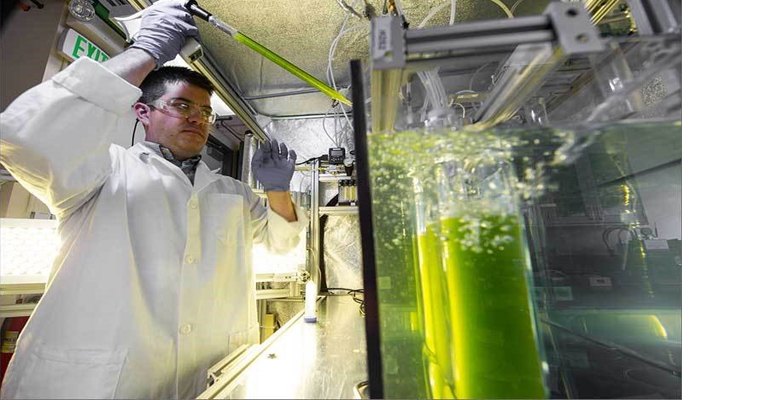The US Department of Energy (DOE) has announced the selection of National Renewable Energy Laboratory (NREL) “Rewiring Algal Carbon Energetics for Renewables (RACER)" project for up to US$3.5 million, as part of the Bioenergy Technologies Office’s (BETO’s) Advanced Algal Systems Program funding opportunity announcement (FOA).

According to a statement from the Energy Department’s Office of Energy Efficiency and Renewable Energy (EERE), the DOE awarded US$15 million for three projects under the Algal Biomass Yield Phase 2 (ABY2) in Fiscal Year 2016. In Fiscal Year 2017, DOE has selected one more project: the National Renewable Energy Laboratory (NREL).
The funding will help BETO support a project to develop technologies that are likely to succeed in producing 3 700 (US) gallons (≈ 14 000 litres) of algal biofuel intermediate or equivalent dry weight basis per acre per year (gal/acre/yr) on an annualized average basis. This amount will be produced through multiple batch campaigns or on a semi-continuous or continuous basis, in an outdoor test environment, by 2020.
BETO expects that projects selected under this ABY2 FOA will help demonstrate a reasonable and realistic plan to produce 3 700 gal/acre/yr by the end of the performance period.
NREL “RACER”
This national laboratory team also includes members from Colorado State University, Colorado School of Mines, Arizona State University, Sandia National Laboratories, POS Bio-Sciences, Sapphire Energy, and Utah State University. The team’s goal is to more than double the productivity of biofuel precursors from algae by making improvements at many stages of the project.
These improvements include increasing algal cultivation productivity, optimizing biomass composition, and extracting and separating different types of algal lipids to reduce the cost for lipid upgrading to renewable diesel.
The team has chosen one “highly promising” algal species, and they will focus on fundamental cell carbon bioenergetics to most efficiently channel the carbon dioxide (CO2) taken in from the atmosphere into useful intermediate products.


